Meet the CEO who brought Chilean salmon to tables in China
Writer: Chen Xiaochun | Editor: Zhang Chanwen | From: Shenzhen Daily |
Encuentro con el CEO que trajo el salmón chileno a la mesa china
Meet the CEO who brought Chilean salmon to tables in China
将智利三文鱼送上中国餐桌的CEO
Video and photos by Lin Jianping except otherwise stated.
Hace 20 años, casi nadie en China conocía el salmón chileno, solo el salmón noruego. Erwin Ivan Campos Avello, el actual CEO de Asia de Camanchaca, fue uno de los primeros en venir a China y traer este producto a la mesa de los hogares chinos.
Twenty years ago, basically no one in China knew about Chilean salmon, only Norwegian salmon. Erwin Ivan Campos Avello, currently CEO of Asia for Camanchaca, was one of the first to come to China and bring this product to the table of Chinese households.
20年前,在中国基本没有人听说过智利三文鱼,那时候大家只知道挪威三文鱼。Erwin Ivan Campos Avello目前担任Camanchaca公司的亚洲首席执行官,他是最早来到中国并将智利三文鱼送上中国餐桌的企业家之一。

Erwin Ivan Campos Avello in his offices.
Erwin Ivan Campos Avello在他的办公室。
Campos se especializó en bioquímica y también obtuvo un máster en ingeniería de alimentos. Después de graduarse se incorporó a Camanchaca, productora de alimentos del mar con una historia de unos 60 años, y compañía para la cual trabaja hasta la fecha.
Campos majored in biochemistry and also obtained a master’s degree in food engineering. After graduation he joined Camanchaca, a seafood producer with a history of some 60 years, a company for which he works to date.
Campos主修生物化学,拥有食品工程的硕士学位。毕业后,他加入了Camanchaca公司,并在这家公司工作至今。Camanchaca是一家拥有约60年历史的海产品生产商。
Primeras visitas a China
First visits to China
中国初体验
En 2002, Campos vino a China por primera vez, porque en aquel momento se encargó de la venta de harina de pescado y China era un gran mercado.
In 2002, Campos came to China for the first time, since he was in charge of selling fishmeal at that time and China was a huge market.
2002年,Campos第一次来到中国,那时候他负责销售鱼粉,而中国是一个巨大的市场。
“China es el comprador número uno del mundo. En ese tiempo Chile y Peru eran los productores mundiales más grandes de harina de pescado. Hoy es Perú, pero seguimos siendo el segundo productor. Y en ese tiempo teníamos mucho volumen para vender y no teníamos representación en China. Solamente trabajábamos con traders que eran chilenos o chinos, pero no teníamos contacto con compradores finales. Y esa fue la misión de mi venir aquí,” contó Campos en una entrevista exclusiva con Shenzhen Daily.
“China is the number one buyer in the world. At that time, Chile and Peru were the world’s largest producers of fishmeal. Today Peru is the number one, but we are still the second-largest producer. And at that time, we had a lot of volume to sell, and we didn’t have representation in China. We only worked with traders who were Chilean or Chinese, but we had no contact with the final buyers. So that was my mission to come here,” Campos said in an exclusive interview with Shenzhen Daily.
“中国是世界上最大的鱼粉进口国。当时,智利和秘鲁是世界上最大的鱼粉生产国。现在,秘鲁是第一大生产国,智利是第二大。在那个时候,我们有大量的产品可以销售,但我们在中国没有代表处,只是与智利或中国的经销商合作,跟终端客户没有直接联系。我来中国就是要解决这个问题。”Campos在接受《深圳日报》独家采访时说。
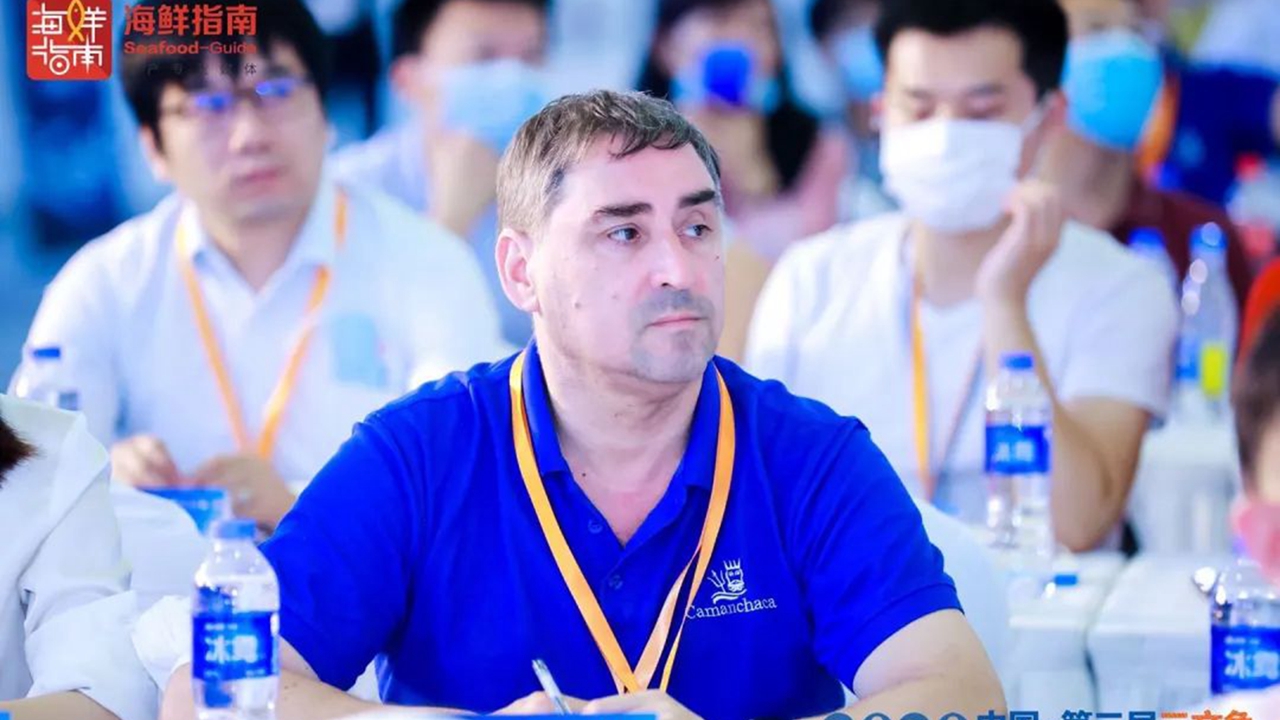
Campos at the 3rd Global Salmon Industry Development Summit in Shanghai in 2020. Courtesy of the interviewee.
2020年,Campos在上海参加中国第三届三文鱼产业发展高峰论坛。
Cuando vino a China, visitó Shenzhen, Guangzhou y Fuzhou. “¿Por qué esas tres zonas? Porque aquí estaban los grandes compradores, los que cultivaban camarón y ánguila eran los que compraban harina de pescado,” dijo Campos.
When he came to China, he visited Shenzhen, Guangzhou and Fuzhou. “Why these three areas? Because these were the big buyers - the ones who farmed shrimp and eel were the ones who bought fishmeal,” Campos said.
他第一次到中国,去了深圳、广州和福州。“为什么是这三个地区?因为那些养殖虾和鳗鱼的人是购买鱼粉的人,他们是大买家。”Campos说。
Así vio a Shenzhen por primera vez en su vida, la cual le sorprendió mucho. “Porque en esos tiempos, uno siempre pensaba que China era antigua, quizás un poco pobre también, y fue algo impresionante ver que era moderna y fue algo que gratamente me ha impresionado,” recordó el empresario chileno.
So, he saw Shenzhen for the first time in his life, which surprised him a lot. “Because in those days, one always thought that China was old, maybe a bit poor too, and it was something impressive to see that it was modern and it has pleasantly impressed me,” the Chilean businessman recalled.
就这样,他认识了深圳,并对这座城市一见倾心。“那时候,在人们的印象中,中国是一个古老甚至有点贫穷的国家,但当我来到深圳,看到一座那么现代化的城市,我感到很震撼,也很兴奋。”这位智利商人回忆说。
En los años siguientes, Campos vino a China todos los años, cuatro veces al año y se quedaba un mes. “No tan solo en China, pero en China principalmente, y también en otras partes de Asia. Así me fui familiarizando aún más con la cultura asiática. Yo creo que eso obviamente influyó en mi futuro,” dijo Campos.
In the following years, Campos came to China annually - four times a year, and stayed for a month each time. “Not only in China, but mainly in China, and also in other parts of Asia. So, I became even more familiar with Asian culture. I think that obviously influenced my future,” Campos said.
在接下来的几年里,Campos每年都会来中国,一年来四次,每次停留一个月左右。“不单单中国,我也会去亚洲其他地区,但主要还是中国。慢慢地,我越来越熟悉亚洲文化,这也显然决定了我之后的选择。”Campos说。
Establecer oficina en Shenzhen
Establishing the Shenzhen office
在深建立办公室
Con el paso del tiempo, Campos ayudó a la compañía a consolidar el mercado chino de harina de pescado y ya no necesitaban hacer más promoción para este producto. Pero a comienzos de 2013, la empresa lo envió a China a establecer una oficina en Shenzhen porque querían abrir el mercado de los productos para el consumo humano.
With the passing of time, Campos helped the company consolidate the Chinese fishmeal market and they no longer needed to do any more promotion for the product. But in early 2013, the company sent him to China to set up an office in Shenzhen because they wanted to open the market for products for human consumption.
随着时间的推移,Campos帮助公司巩固了中国鱼粉市场,他们不再需要为该产品做任何推广。但在2013年初,公司想在食品领域打开中国市场,于是派他到深圳设立办公室。
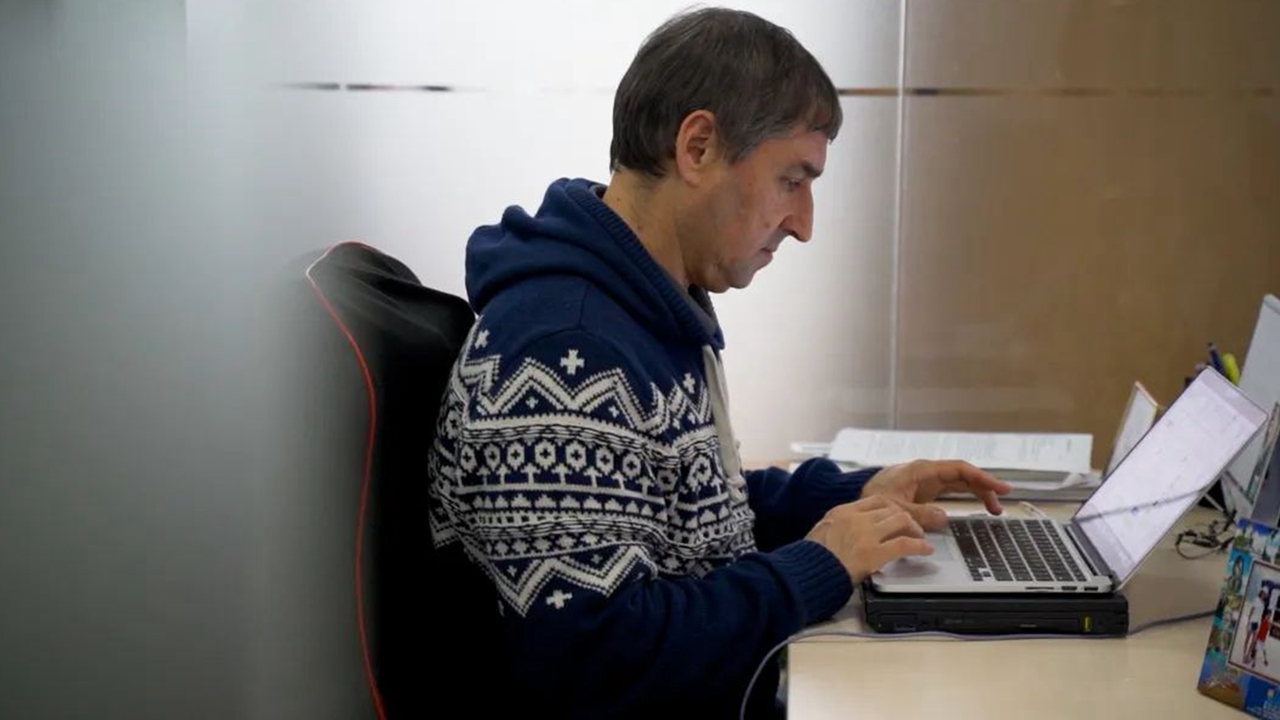 Campos works in his office
Campos works in his office
Campos在办公室工作。
“Consumo humano, principalmente de salmón, porque nosotros también somos un grand productor de salmón. Tú sabes que Chile es el segundo productor más grande del mundo en salmón después de Noruega. En esos tiempos todos decían el salmón noruego. Era lo único que conocían. Entonces teníamos una larga tarea por delante,” contó Campos.
“Human consumption, mainly of salmon, because we are also a large producer of salmon. You know that Chile is the second-largest producer of salmon in the world after Norway. In those days, everybody said Norwegian salmon. It was the only thing they knew. So, we had a long-term task ahead of us,” Campos said.
“公司销售的食品,主要是三文鱼,因为我们也是三文鱼生产大国。你知道,智利是仅次于挪威的第二大三文鱼生产国。但在那时,大家都只提挪威三文鱼,他们只知道挪威三文鱼。所以,当时我们有一个长期而艰难的任务。”Campos说。
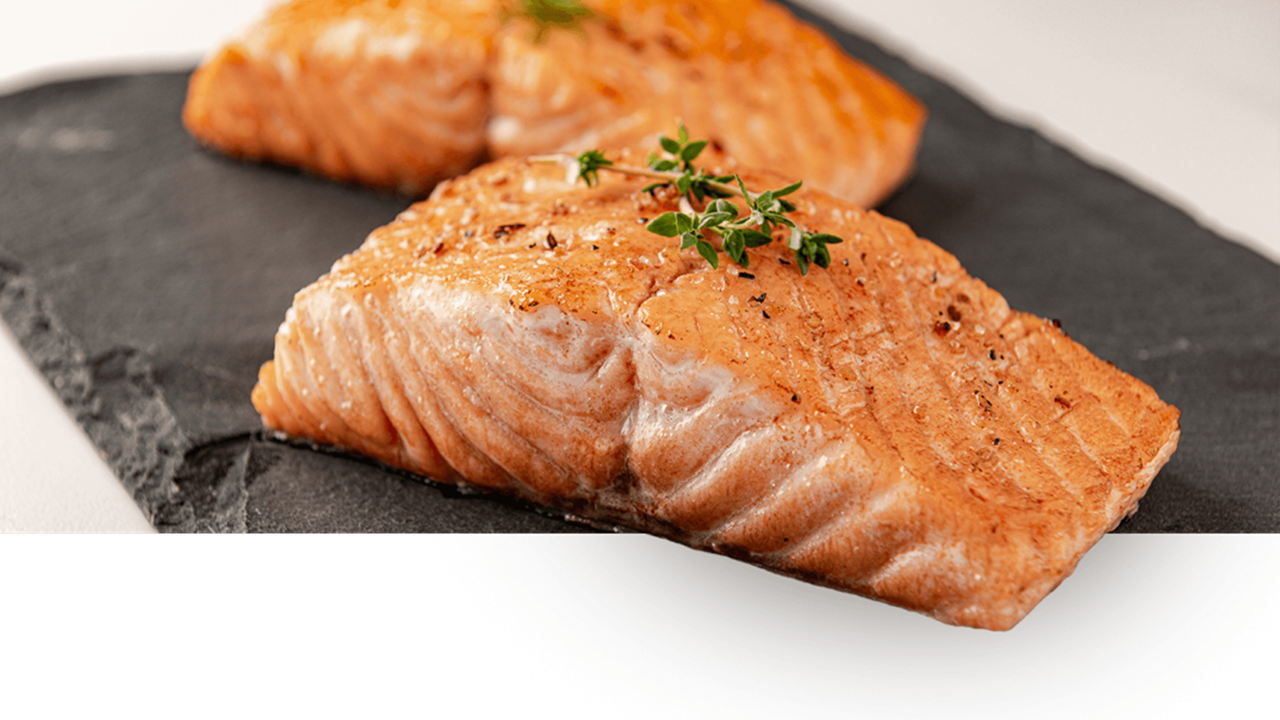 The product of their company. Courtesy of the interviewee.
The product of their company. Courtesy of the interviewee.
他们公司的产品。
Él eligió Shenzhen para establacer la oficina. ¿Por qué Shenzhen? “Uno, porque era más moderno. Yo veía que este lugar era lo más cercano a Occidente, porque era algo más nuevo. En segundo lugar, porque tenía un clima agradable, casi todo el año con calor que a mucha gente le molestaba, pero a mí no. Y en tercer lugar, porque está al lado de Hong Kong donde yo ya tenía un mercado bastante fuerte de nuestro producto del mar,” enumeró las razones.
He chose Shenzhen to set up the office. Why Shenzhen? He reasoned: “First, because it was more modern. I saw this place was more similar to the West, because it was new. Second, because it had a nice climate, with heat almost all year round, which bothers many people, but not me. And third, because it borders Hong Kong where I already had a fairly strong market for our seafood product.”
他选择在深圳设立办公室,理由是:“第一,深圳更现代化,与西方更相似,因为它很新。第二,深圳气候很好,几乎一年四季都很热,虽然这让很多人感到困扰,但我很喜欢。第三,它与香港接壤,而我们已经在香港建立了成熟的市场。”
A la vez, logísticamente le venía bien porque desde Shenzhen volaba internamente a toda China. Y cuando necesitaba viajar internacionalmente se iba a Hong Kong. Para Campos, Shenzhen era su centro de operaciones.
At the same time, it suited him logistically well because from Shenzhen he could fly internally to all of China. And when he needed to travel internationally, he would go to Hong Kong. For Campos, Shenzhen was his central operation hub.
此外,深圳交通便利,他可以从深圳飞往中国各地,如果需要去其他国家,他可以从香港出发。简而言之,深圳就是他的运营中心。
“Desde el primer tiempo fue mi centro de operaciones y además tenía un cliente muy grande de harina de pescado aquí. Él mismo me introdujo y me dijo: ‘Vente a Shenzhen, que te va a gustar, va a ser como lo más parecido a lo que tú conoces del área occidental,’” dijo Campos, añadiendo que otra razón importante era que aquí conoció a su esposa.
“From the very first time, it was my center of operations. Besides, I had a very big fishmeal client here. He himself introduced me and told me: ‘Come to Shenzhen, you’re going to like it. It will be similar to what you know from the Western countries,’” Campos said, adding that another important reason was that he met his wife in the city.
“从我第一次来中国开始,深圳就是我的运营中心。此外,我在这里有一个鱼粉大客户,他就强烈推荐我来深圳:‘来深圳吧,你会喜欢这里的。它很像你所认识的西方。’”Campos说道,而他另一个来深圳的原因是因为他在这里遇到了他的妻子。
Se arriesgó a abrir el mercado chino, vino y se queda hasta hoy. “En eso fuimos los lideres, sin lugar a duda. Y hoy en día, nos reconocen eso, nuestros clientes finales y nuestros clientes distribuidores. Fuimos los que se arriesgaron, cuando nadie quería hacerlo. Pero cuando vieron que era exitoso, todos vinieron para acá, todos quisieron hacer lo mismo,” dijo Campos.
He took the risk of opening the Chinese market, came and has stayed put. “In that sense we were the leaders, without a doubt. Today, we are recognized for that by our end customers and our distributors. We were the ones who took the risk when nobody wanted to do it. But when they saw that it was successful, everyone came here, everyone wanted to do the same,” Campos said.
他成为第一个吃螃蟹的人,在中国成功开拓了市场,从此留在了这片土地上。“从这个意义上说,毫无疑问,我们是领头羊。今天,我们的终端客户和分销商都对我们非常认可。当一开始没有人愿意这样做的时候,我们冒险并做了。当大家都看到我们的成功时,就都学着我们来这里了,每个人都想做同样的事情。”Campos说。
Consorcio chileno de salmón
Chilean salmon consortium
智利三文鱼联盟
Para potenciar las ventas de salmón en China, a finales de 2013, Campos de Camanchaca inició un joint venture con otro cuatro compañías de salmón incluidos Australis, Blumar, Yadran y Marine Farm. Las cinco empresas en la salmonicultura chilena crearon la marca New World Currents para el mercado de China.
To boost salmon sales in China, in late 2013, Campos, who works for Camanchaca, initiated a joint venture with four other salmon companies including Australis, Blumar, Yadran and Marine Farm. The five companies in Chilean salmon farming created the New World Currents for the Chinese market.
为促进三文鱼在中国市场的销售,2013年底,Campos发起了一个项目,Camanchaca、Australis、Blumar、Yadran 和 Marine Farm等五家智利三文鱼公司成立了合资营销公司“新海线”,专攻中国市场。
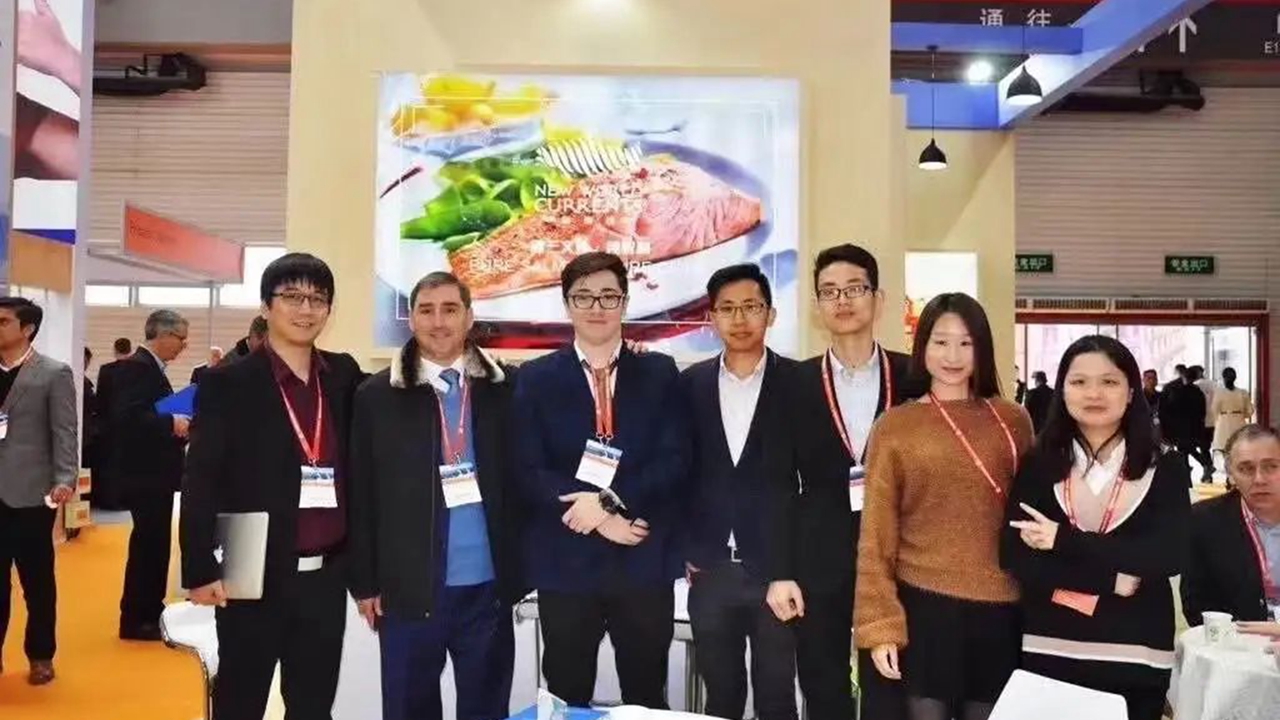 Campos poses for a photo with his staff in Qingdao in 2018, when he served as CEO of the New World Currents.
Campos poses for a photo with his staff in Qingdao in 2018, when he served as CEO of the New World Currents.
2018年,Campos在青岛与其员工合照,当时他担任新海线的首席执行官。
Desde septiembre de 2013 a febrero de 2019 Campos sirvió como CEO del consorcio. “Fue bastante interesante porque dentro de este grupo había una empresa que nunca había mandado un contenedor aquí. Camanchaca era la que mejor estaba posicionada en el mercado, porque por mi parte vendía algo. Pero había alguna que no vendía nada, incluso una que fue la más importante dentro del grupo, pero en esos momentos ellos vendían dos contenedores al año, lo cual era nada para la producción que nosotros hacíamos,” contó Campos.
From September 2013 to February 2019, Campos served as CEO of the joint venture. “It was quite interesting because within this group there was a company that had never sent a container of salmon here. Camanchaca was the one that was best positioned in the market, because on my side it sold something. But there were some that did not sell anything, including one that was the most important within the group, but at that time they sold two containers of salmon a year, which was nothing for the production we were doing,” Campos said.
2013年9月至2019年2月,Campos担任新海线的首席执行官。“这很有趣,因为在这个联盟中,有些公司之前从未向中国运送过三文鱼。Camanchaca当时算在中国运营得比较好的,因为我这边有些销售量。但有些公司基本是零销售,包括联盟内部最重要的一家公司,那时他们一年只能销售两个集装箱的货物,这和我们的生产量相比毫无意义。”Campos说。
Tras muchos esfuerzos, el consorcio hizo muchos hitos históricos. Enviaron salmón fresco desde Chile a China. Fueron los grandes líderes del salmón fresco. “En ese tiempo todo el mundo decía ‘¡pero de loco!’ porque estaban acostumbrados con Noruega cuyo envío tardaba dos días, máximo tres días, y de Chile tardaba cuatro o cinco días,” recordó Campos. Pero manteniendo la cadena de frío lograron entrar el mercado chino con los mayores volúmenes de la historia, incluso superando a Noruega.
After many efforts, the consortium made many historic milestones. They shipped fresh salmon from Chile to China. They became the leaders in fresh salmon. “At that time everyone said, ‘but how crazy!’ because they were used to Norwegian salmon whose shipment took two days, maximum three days, and from Chile it took four or five days,” recalled Campos. But by maintaining the cold chain they managed to enter the Chinese market with the largest volumes in history, even surpassing Norway.
经过大量努力,该联盟取得了许多历史性的突破。他们将冰鲜三文鱼从智利运到中国,成为冰鲜三文鱼的领头羊企业。“当时每个人都说:‘但这太疯狂了!’因为他们已经习惯了从挪威运输过来的三文鱼,那只需要两天,最多三天的运输时间,而从智利运过来则需要四五天。”Campos回忆道。但通过冷链运输,他们成功地以历史上最大的交易量进入了中国市场,甚至超过了挪威。
Aparte de sus propios esfuerzos, también tenían una ventaja. Según el tratado de libre comercio firmado entre China y Chile, sus productos disfrutan de cero arancel, lo cual significa que el salmón chileno es menos costoso para los consumidores chinos que el salmón noruego.
Apart from their own efforts, they enjoyed an advantage. According to the free trade agreement signed between China and Chile, their products enjoy zero tariff, which means that Chilean salmon is less expensive for Chinese consumers than Norwegian salmon.
除了自己的努力外,他们还享有优势。根据中国与智利签署的自贸协定,他们的产品享受零关税,也就是说,对中国消费者来说,智利三文鱼比挪威三文鱼便宜。
“Yo creo que al día de hoy todo el mundo sabe que el salmón chileno es lo mismo que el noruego, simplemente que está un poco más lejos. Pero eso fue la finalidad de crear esta empresa,” dijo el empresario contento.
“I think that today everyone knows that Chilean salmon is the same as Norwegian salmon. It is just a little far away. But that was the purpose of creating this joint venture,” Campos said, contently.
“今天大家都知道智利三文鱼和挪威三文鱼一样,只是智利比较远。但这就是我们成立这家合资企业的目的。”Campos满意地说。
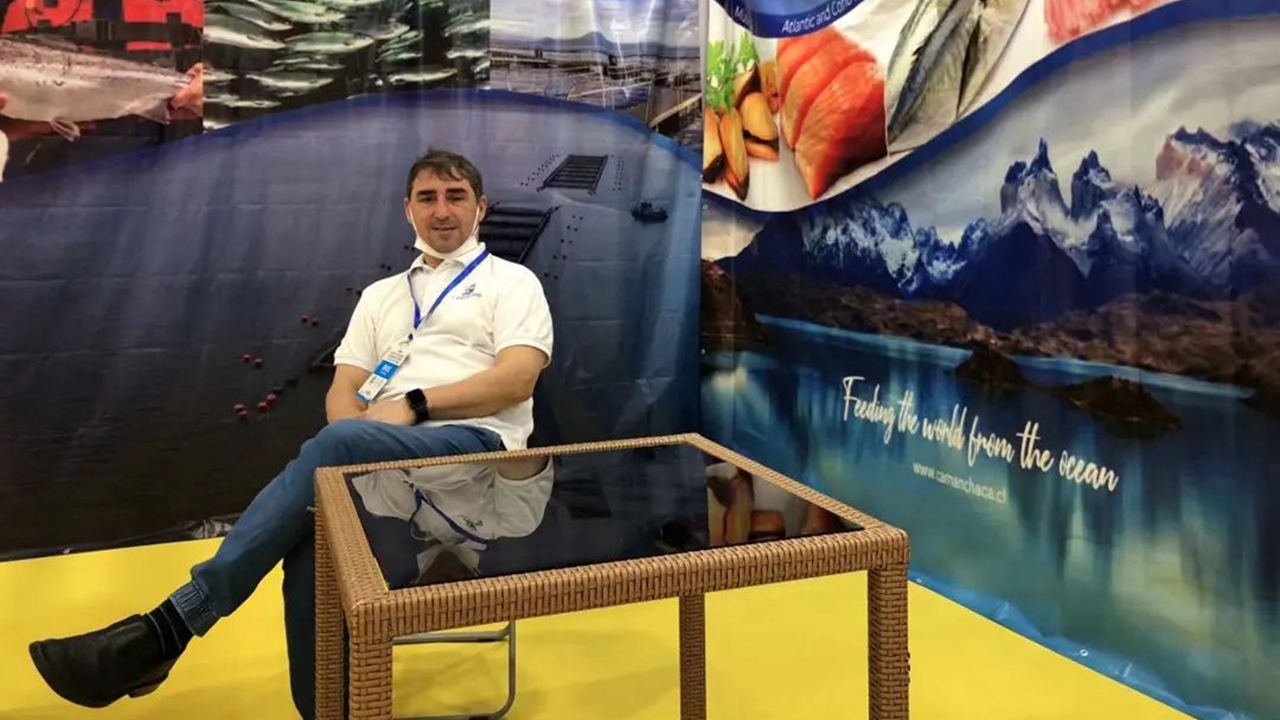 Campos in a Guangzhou seafood exhibition in 2020. Courtesy of the interviewee.
Campos in a Guangzhou seafood exhibition in 2020. Courtesy of the interviewee.
2020年,Campos在广州参加一个海产品展会。
En 2019, La china Joyvio Group, filial del conglomerado Legend Holdings, firmó un acuerdo para comprar la totalidad de las acciones de la salmonera chilena Australis Seafoods y ésta dejó al joint venture. En 2020, Camanchaca también se retiró de la alianza New World Currents.
In 2019, China’s Joyvio Group, a subsidiary of the Legend Holdings conglomerate, signed an agreement to buy all the shares of the Chilean salmon company Australis Seafoods and the latter left the joint venture. In 2020, Camanchaca also withdrew from New World Currents.
2019年,联想控股旗下的佳沃集团签约收购智利三文鱼公司Australis Seafoods的全部股份,随后这家公司离开了新海线。2020 年,Salmones Camanchaca也退出了新海线。
“Porque cada uno ya tenía su mercado, algunos ya los conocían por la marca. Entonces al final nos dividimos y cada uno nos fuimos por nuestro lado. Nosotros como Camanchaca seguimos siendo lo mismo que inicialmente creamos en el 2013, teniendo nuestra oficina aquí y vendiendo no tan solo salmón, también muchos otros productos del mar. Nosotros somos productores. No somos traders. Y eso a la gente aquí le agrada porque siente que está discutiendo directamente con el productor,” dijo Campos.
“Because everyone already had their own market, some already were known by the brand. So, in the end we split up and we each went our own way. We as Camanchaca remain the same as we initially created it in 2013, having our office here and selling not only salmon, but also many other seafood products. We are producers. We are not traders. And people here like it because they feel they are communicating directly with the producer,” Campos said.
“因为每个公司都有了自己的市场,有些公司的品牌已被大家所熟知。所以,最后我们选择分道扬镳,各干各的。作为Camanchaca,我们与 2013 年来这里成立办公室时一样,保持着初心。我们不仅销售三文鱼,还销售许多其他海鲜产品。我们是生产商,不是贸易商,所以这里的人们很喜欢我们,因为他们直接跟我们沟通。”Campos说。
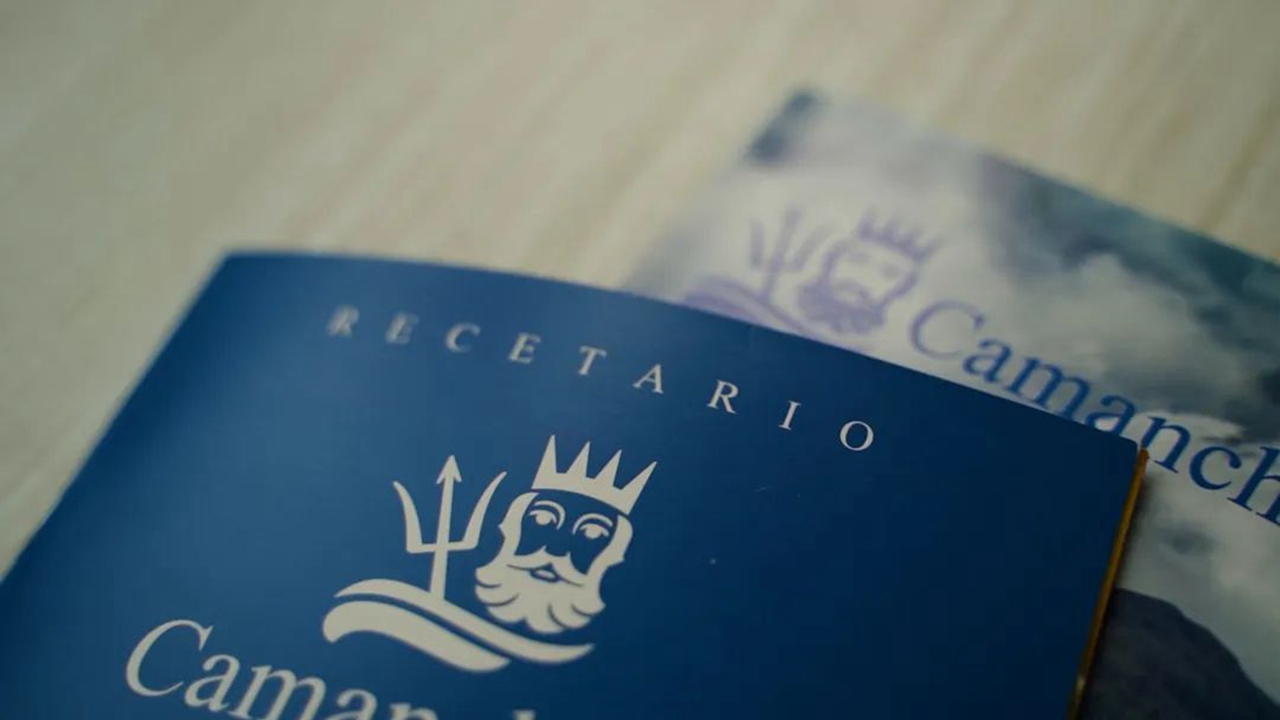
Brochures of Camanchaca.
Camanchaca的宣传册。
Altibajos del negocio
Ups and downs in business
生意跌宕起伏
Camanchaca no solo vende salmones, también langostinos, abalones, y mejillones, entre otros.
Camanchaca not only sells salmon, but also shrimp, abalones and mussels, among others.
Camanchaca不仅销售三文鱼,还销售虾、鲍鱼和贻贝等。
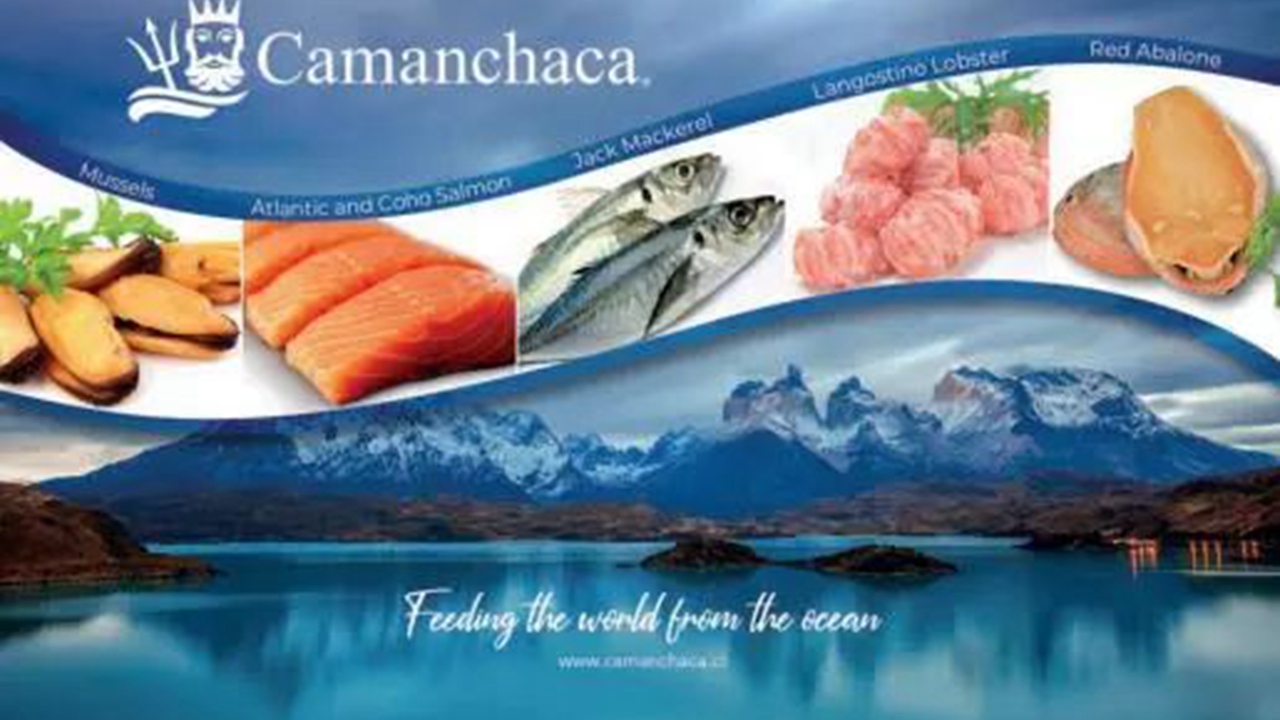 Products of the company. Courtesy of the interviewee.
Products of the company. Courtesy of the interviewee.
Camanchaca的海产品。
Atrás en 2013, Shenzhen y Guangzhou juntos eran el gran mercado para sus productos. “Cuando nosotros introducimos el salmón fresco en 2013, 2014, hicimos el envío aéreo a Guangzhou y luego los productos se distribuían entre Guangzhou y Shenzhen. El 75% de nuestro salmón fresco en el mercado chino era para esta área, y el otro 25% para Beijing y Shanghai,” contó Campos.
Back in 2013, Shenzhen and Guangzhou together were the big market for their products. “When we introduced fresh salmon in 2013 and 2014, we did air shipments to Guangzhou and then the products were distributed between Guangzhou and Shenzhen. 75% of our fresh salmon in the Chinese market was for this area, and the other 25% for Beijing and Shanghai,” Campos recounted.
2013年的时候,深圳和广州是他们的主要市场。“2013年、2014年那会我们引进新鲜三文鱼时,我们将产品空运到广州,然后在广州和深圳销售。那时我们给中国市场的新鲜三文鱼75%都是在这里消化,另外25%则卖到北京和上海。”Campos述说道。
Según él, la Provincia de Guangdong fue el principal mercado de 2013 hasta 2017, luego fueron creciendo Beijing y Shanghai, y hoy en día se ha revertido, Shanghai ocupa el 80% de sus ventas.
According to him, Guangdong Province was the main market from 2013 to 2017. Later, the Beijing and Shanghai markets were growing, and today the situation has reversed, with Shanghai occupying 80% of its sales.
据Campos介绍,2013年至2017年期间,广东省是他们的主要市场。后来,北京和上海那边销量不断增长。今天,上海占据了其80%的销售量。
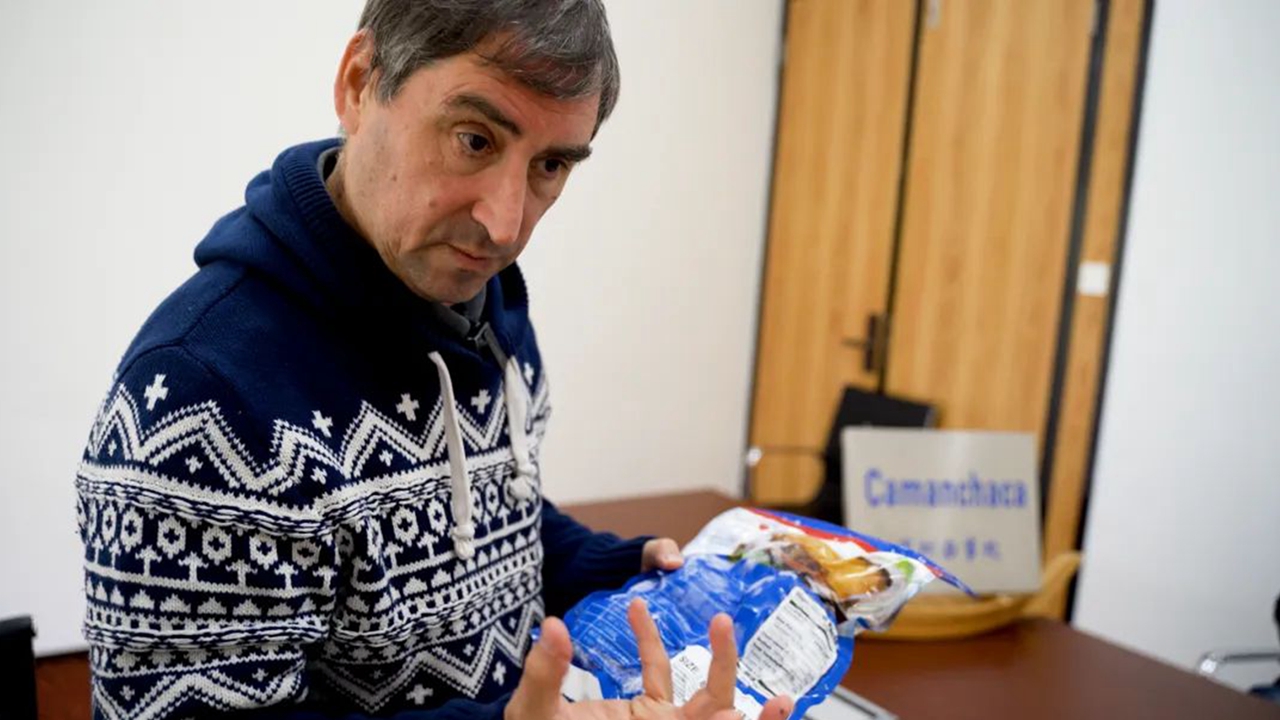 Campos introduces their products.
Campos introduces their products.
Campos介绍他们的产品。
El negocio iba creciendo hasta que llegó la pandemia de COVID, la cual asesta un golpe duro a su negocio. “La pandemia afecta mucho a nuestro negocio. De hecho, el joint venture de salmoneras al final se dividió porque durante la pandemia se vendía tan poco que no era necesario,” dijo Campos.
Their business was growing until the COVID pandemic came, which dealt them a hard blow. “The pandemic hit our business hard. In fact, the salmon farming joint venture eventually split up because during the pandemic, so little was sold that it was not necessary,” he said.
他们的业务不断增长,直到新冠疫情的到来,给了他们重重一击。“疫情对我们的业务打击很大。事实上,我们退出新海线合资企业,主要是因为疫情期间销售量实在太少了,已经没有这个必要。”Campos说。
El golpe más duro para ellos no es la pandemia en sí misma, sino un problema ocurrido en el mercado fresco de Beijing a mediados de 2020 cuando las autoridades identificaron el origen de un brote del virus en una tabla de cortar utilizada por un vendedor de pescado importado.
Their hardest blow is not the pandemic itself, but a problem that occurred in a fresh market in Beijing in mid-2020, when authorities identified the source of an outbreak of COVID-19 on a cutting board used by a vender of imported fish.
然而,对他们打击最大的不是疫情本身,而是2020年年中发生在北京一个水产市场的疫情事件,当时有关部门在一个进口鱼贩使用的切割案板上发现了新冠病毒。
“Se difundió que era el salmón y allí nadie compró nada y se paró todo. O sea, fue así, ¡bum! En la plataforma de una empresa china líder del e-commerce íbamos con una venta histórica. Vendíamos un volumen altísimo de porciones de salmón, y de repente bajó a cero en toda China. Entonces la pandemia nos afectó fuerte. Ese nos marcó y te diría que hasta el día de hoy nos ha costado levantarnos,” dijo Campos.
“It spread that it was the salmon, and nobody bought anything and everything stopped. In other words, it was like, boom! On the platform of a leading Chinese e-commerce company, we had a historic sale. We were selling a very high volume of salmon portions, and all of a sudden it went down to zero across China. So the pandemic hit us hard. That one marked us, and I would tell you that to this day it has been hard for us,” Campos said.
“所以就传播开了,大家都说三文鱼,一时之间,人人谈鱼色变,没有人敢购买三文鱼,‘砰’的一下,销售全部暂停了。在中国一家有名的电商平台上,我们的销售本来达到了历史新高,销售了很多三文鱼。突然间,整个中国的销售量下降到零。所以疫情给我们带来了沉重的打击,那一次让我们损失惨重,直到今天,我们还没有缓过来。”Campos说道。
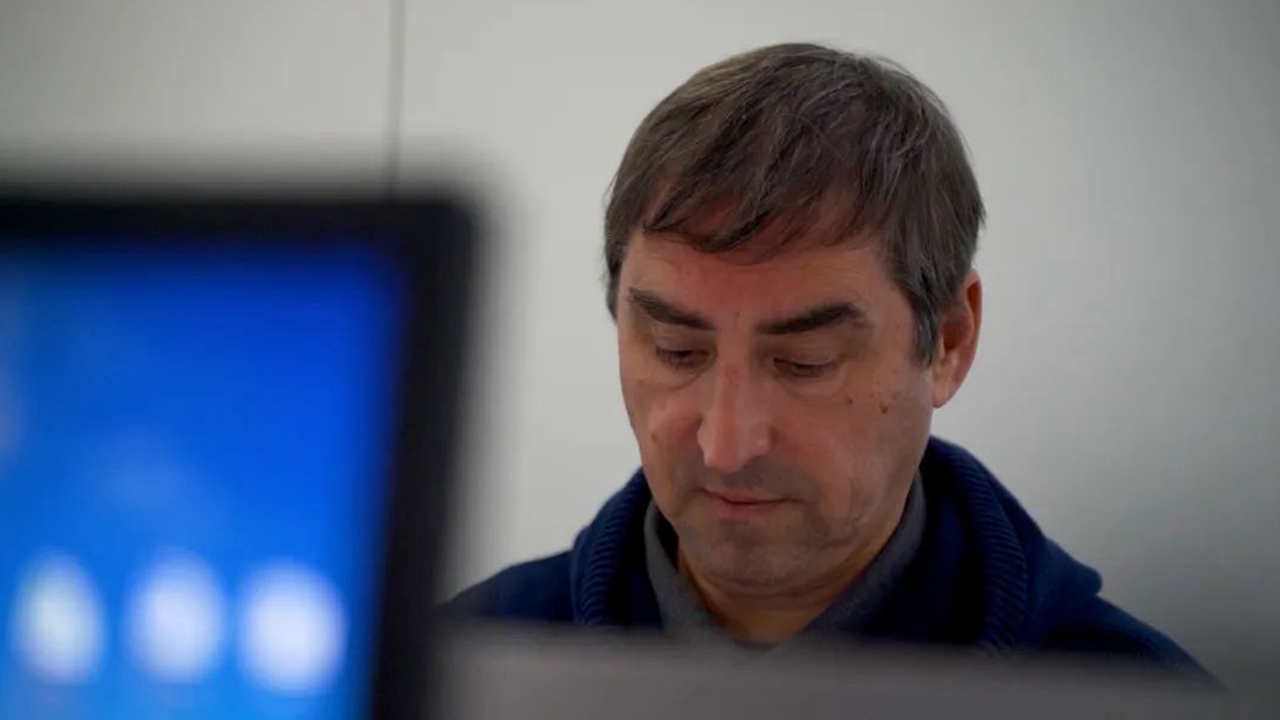
Antes ellos enviaban los productos directamente a los destinos finales como Guangzhou y Shenzhen. Ahora con el brote en Beijing, muchos almacenes de Camanchaca en diferentes ciudades están bloqueados y solo pueden enviar los productos a Shanghai.
Before the pandemic, they shipped products directly to final destinations such as Guangzhou and Shenzhen. Now with the outbreak incident in Beijing, many of their warehouses in different cities are blocked and they can only ship products to Shanghai.
之前,他们直接将产品运送到广州和深圳等最终目的地。但北京的疫情事件后,他们在很多城市的冷库都被封了,所以只能把产品运到上海。
“Por más que en Chile se están haciendo muy buenos trabajos, se están haciendo todos los controles sanitarios que exige China y más, aun así, caemos en la categoría de marisco importado y tenemos hasta el día de hoy con la empresa del e-commerce, stocks que están bloqueados como los de Guangzhou y Beijing, y no podemos vender desde estos lugares. Y todos los productos los tenemos que enviar desde Shanghai,” dijo Campos.
“Even though in Chile they are doing a very good job, they are doing all the sanitary controls that China requires and more, even so, we fall into the category of imported seafood and until today, with the e-commerce company, we have stocks that are blocked like those of Guangzhou and Beijing, and we cannot sell from these places. So, we have to ship all the products from Shanghai,” Campos said.
“尽管在智利,安全卫生工作都做的非常好,符合中国的所有卫生防疫要求,甚至比要求做得还严,但我们属于进口海鲜行业......直到今天,在电商平台上,我们在广州和北京的冷库都被封了,所以不能从那里直接销售。我们只能从上海运送所有的产品。”Campos说。
La gente está regresando a comprar lentamente, pero en comparación con la venta de pre-pandemia, la venta ahora solo alcanza el 30%, según Campos.
People are slowly coming back to buy, but compared to pre-pandemic sales, the sales now only reach 30%, according to Campos.
Campos说,虽然顾客们又重新购买三文鱼,但与疫情前相比,现在的销售只达到之前的30%。
La Gran Área de la Bahía, un futuro muy prometedor
The Greater Bay Area, a promising future
大湾区——前景无限
Para Campos, la Gran Área de la Bahía de Guangdong-Hong Kong-Macao tiene un futuro muy prometedor.
For Campos, the Guangdong-Hong Kong-Macao Greater Bay Area (GBA) has a very promising future.
对Campos来说,粤港澳大湾区前程似锦。
Tienen ventas en toda esta área. “Hong Kong ya es bastante maduro como mercado, Shenzhen está madurando cada vez más rápido, Guangzhou es un mercado tradicional y antiguo, y en Macao, nosotros tenemos venta a través de Hong Kong,” dijo Campos.
They have sales across the whole area. “Hong Kong is a very mature market, Shenzhen is maturing faster and faster, Guangzhou is a traditional and old market, and in Macao, we have sales through Hong Kong,” Campos said.
他们在整个大湾区都有销售。“香港是一个非常成熟的市场,深圳市场则在加速发展中,广州是一个传统的老市场,澳门那边,我们通过香港进行销售。”Campos说。
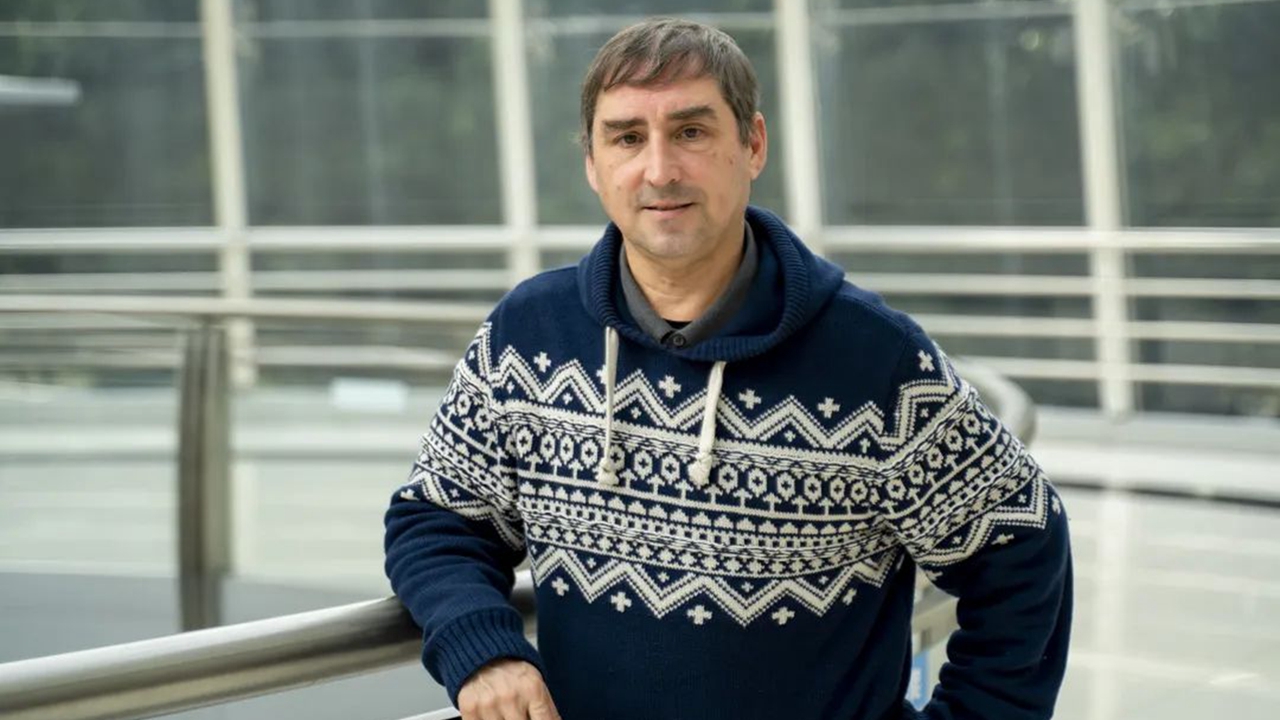
Campos poses for a photo in the office building.
Campos在其办公楼。
“Cuando se construyó el puente Hong Kong-Zhuhai-Macao, mis compradores de Hong Kong nos contaron que les venía perfecto porque resolvieron el problema logístico. El futuro que se ve con esta unión es muy prometedor, por lo menos, para el área nuestra. La oficina está aquí. Tenemos productos que se venden más aquí y yo creo que esto lo va a potenciar aún más,” dijo el empresario.
“When the Hong Kong-Zhuhai-Macao Bridge was built, our buyers in Hong Kong told us that it was perfect for them because the logistical problem was solved. The future of this area is very promising, at least, for our field. Our office is here. We have products that sell more here, and I think this will boost it even more,” the entrepreneur said.
“当港珠澳大桥建成后,我们的香港经销商告诉我们,这对他们来说是一个极好的消息,因为物流问题得到了解决。这个地区前景无限,至少,对我们这个领域来说是这样的。我们的办公室在这里,我们在这个区域的销售量很大,粤港澳大湾区的发展规划会进一步促进我们的业务发展。”这位智利企业家说。
Campos cree que la Gran Área de la Bahía va a ser muy buena imagen para el resto de China, “cuando vean que esto está creciendo, creciendo y creciendo, van a querer decir: ‘Ah, quiero participar en esto también.’ Así que no me cabe la menor duda lo que se haga en la Gran Área de la Bahía va a ser un ejemplo.”
Campos believes that the GBA is going to be a very good image for the rest of China, “when they see that this is growing and growing and growing, they’re going to say, ‘Ah, I want to participate in this too.’ So there’s no doubt that what they are doing in the Greater Bay Area will become a good example.”
Campos认为,大湾区将成为中国其他地区的模范。“当他们看到这里不断发展壮大时,肯定会说:‘啊,我也想参与其中。’所以毫无疑问,大湾区的发展将成为一个很好的范例。”
Para su futuro, Campos ve su vida aquí. Tiene una familia feliz, con su esposa china y sus mellizos de 11 años de edad.
For his future, Campos sees his life here. He has a happy family, with his Chinese wife and 11-year-old twins.
展望未来,Campos认为他的生活就在中国。在这里,他有一个幸福的家庭,有他的中国妻子和一对11岁的龙凤胎。
 Campos and his family pose for a photo. Courtesy of the interviewee.
Campos and his family pose for a photo. Courtesy of the interviewee.
Campos及其家人合影。
“Mi idea es tener esta oficina hasta siempre. No tengo pensado volver a Chile. Me gusta la vida aquí. Es tranquila, la gente es bastante educada, y la ciudad es moderna, siempre creando algo nuevo. Entonces eso también da alegría de saber que esto nunca termina de seguir creciendo. Y lo bueno es que esta ciudad es nueva, entonces puede seguir creciendo, creciendo y creciendo, y no se topa con cosa antigua. Entonces eso también es bueno para mí, y para el entorno de mi familia,” dijo el empresario chileno.
“My idea is to have this office forever. I don’t plan to go back to Chile. I like the life here. It’s quiet, the people are well-educated, and the city is modern, always creating something new. It’s also good to know that it never stops growing. And the good thing is that this city is new, so it can keep growing, growing and growing, and it doesn’t run into old things. So that is good for me and for my family,” he concl
“我的想法是一直运营这个办事处,我不打算回智利发展。我喜欢这里的生活,这里很安静,人们都受过良好的教育,城市很现代化,总是在创造新的东西。它从未停止过发展,这是一件好事。另一方面,这座城市很新,所以它可以一直不停地发展壮大,不会受到旧事物的阻挠,这对我和我的家人来说都是好事。”他总结说。

The 11-year-old twins of Campos. Courtesy of the interviewee.
Campos的11岁龙凤胎孩子。